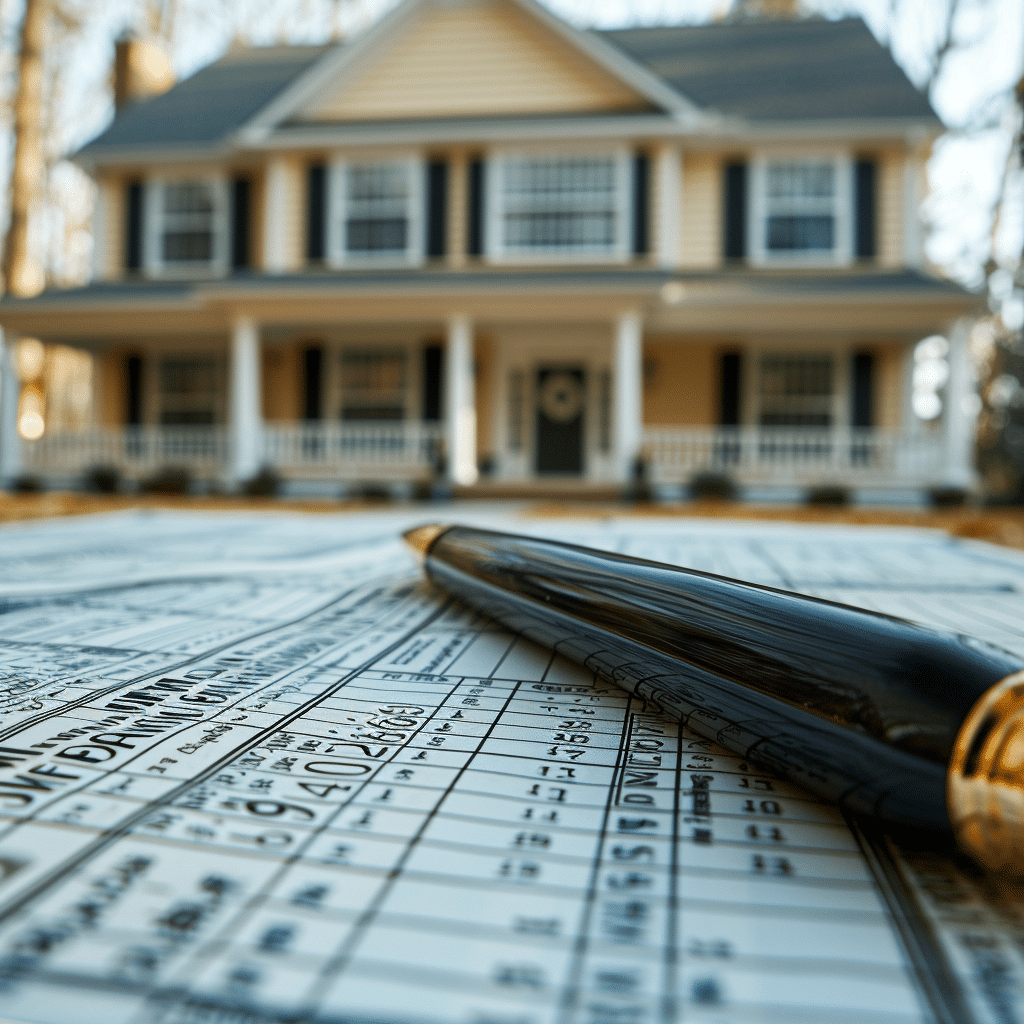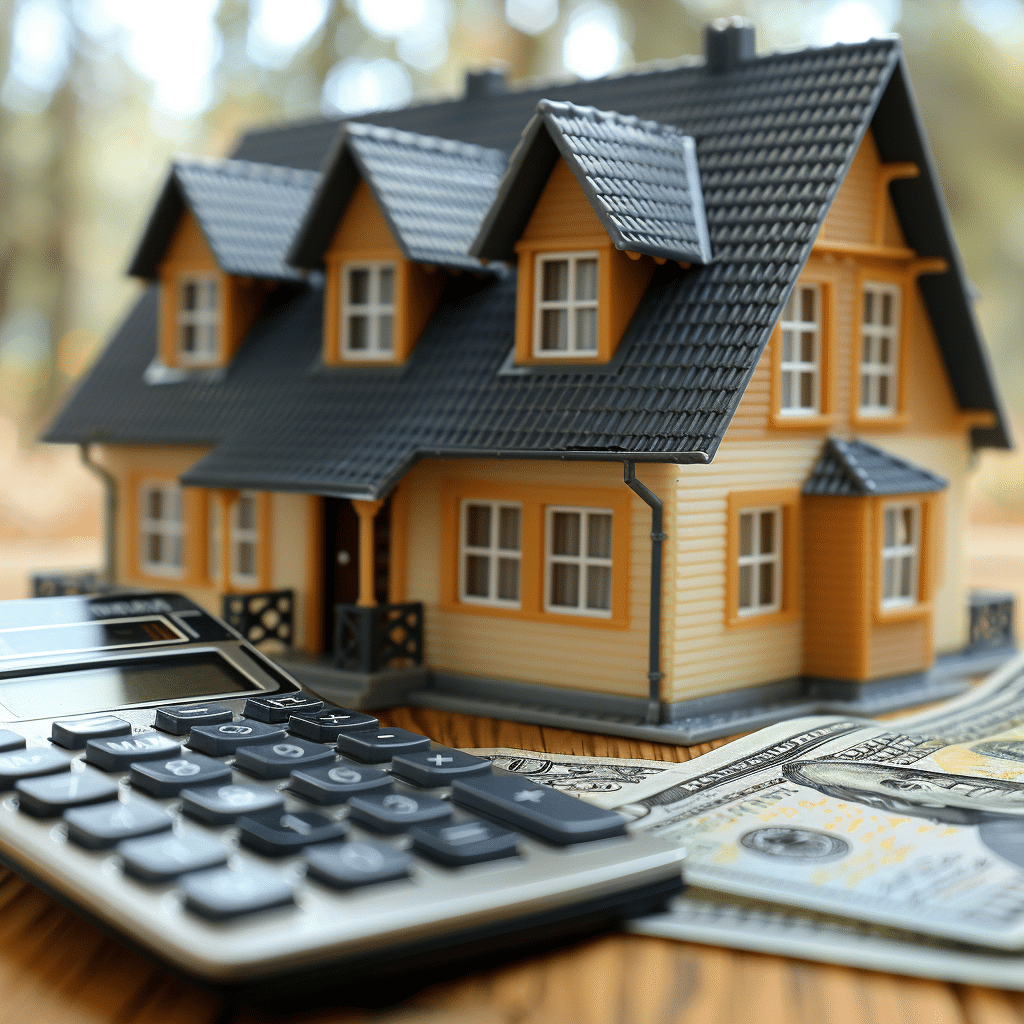How Is Property Tax Calculated: Key Factors Unveiled
Understanding how property tax is calculated can be a brain-bender for many homeowners. Yet, it’s essential to grasp this concept to manage your finances more effectively. Property taxes significantly influence your annual budget and long-term financial planning. This comprehensive guide seeks to unveil the secrets behind property tax calculations, providing you with the tools and knowledge to arm yourself against unexpected tax changes.

Breaking Down the Basics: How Property Taxes Are Based On Assessed Value
Property taxes primarily hinge on the assessed value of your property. This assessment, performed by municipal or county assessors, forms the foundation for calculating your property taxes. Here’s how it typically works:
- Assessment Process: Government-hired professional assessors evaluate factors such as location, size, and market conditions to determine the property’s value.
- Comparable Sales: Assessors often scrutinize recent sales of similar properties in your area to estimate your property’s value.
- Depreciation and Improvements: Depreciation or enhancements to your home can sway the assessed value.
For instance, the Los Angeles County Assessor’s Office uses a comparative market analysis to update home values. Conversely, in Allegheny County, Pennsylvania, annual reassessments are the go-to, reflecting current market conditions.

Effective Tax Rate: How To Calculate Property Tax
Once the assessed value is established, the next tally involves applying the effective tax rate to determine the actual property tax owed. Here’s a straightforward breakdown:
- Tax Rate Calculation: The effective tax rate comprises numerous rates from various local government entities like municipalities, counties, and school districts.
- Mill Rate: Often expressed in mills, one mill represents one-tenth of a cent. For example, if the effective tax rate in Austin, Texas, is 2.3%, you’d multiply your assessed home value by 0.023 to calculate the annual tax.
Example:
Imagine your home in Miami-Dade County, Florida, has an assessed value of $300,000, and the effective tax rate is 1.5%. Your property tax calculation would look like this:
\text{Property Tax} = \text{Assessed Value} \times \text{Effective Tax Rate}
\text{Property Tax} = \$300,000 \times 0.015 = \$4,500
| Aspect | Description |
| Assessed Value | The appraised market value of the property determined by the local tax assessor. |
| Assessment Ratio | A percentage applied to the appraised value to determine taxable value. |
| Tax Rate (Mill Rate) | The amount of tax payable per $1,000 of assessed value, often expressed in mills. |
| Calculation Formula | \[(Assessed Value × Assessment Ratio) ÷ 1,000\] × Tax Rate (Mill Rate) |
| Exemptions & Deductions | Reductions in taxable value for qualifying homeowners (e.g., homestead exemptions). |
| Special Assessments | Additional charges for local improvements (e.g., street repairs, sewer upgrades). |
| Taxing Authorities | Entities such as counties, cities, or school districts that levy property taxes. |
| Payment Frequency | Property taxes are typically paid annually or semi-annually. |
| Penalties for Late Payment | Additional fees imposed for overdue property taxes. |
| Reassessment Frequency | Properties are reassessed on a periodic basis, often every 1-5 years, to reflect changes in market value. |
Factors That Influence Property Taxes: Secrets Revealed
Various elements can cause fluctuations in the property taxes you may owe:
- Local Budgets and Expenditures: Municipal budgets for schools, public safety, and infrastructure can significantly impact property tax rates. Cities like San Francisco, known for their superior public services, may have heftier property taxes than smaller towns with fewer amenities.
- State Legislation: Some states impose caps on annual property tax rate increases. For example, California’s Proposition 13 limits the annual increase of assessed value to 2%, unless the property changes hands.
- Market Conditions: Economic shifts, such as housing booms or busts, can alter your property’s assessed value and subsequent tax liabilities. During the 2008 housing crisis, many homeowners saw their property taxes plummet due to falling property values.
Appeals and Exemptions: Navigating the Property Tax Maze
Homeowners often feel overburdened by property taxes. Thankfully, there are ways to challenge and potentially reduce your tax obligations:
- Appeals Process: Many jurisdictions offer homeowners the chance to appeal their property’s assessed value. Using tools like recent sales data of similar properties or third-party appraisals can bolster your case. For instance, Cook County, Illinois, permits homeowners to file complaints with the Board of Review.
- Exemptions and Deductions: Certain taxpayers might qualify for exemptions that lower their taxable property value. Common exemptions include:
- Homestead Exemption: Available in states such as Florida, this offers significant savings by reducing a portion of the property’s assessed value.
- Veteran’s Exemptions: Various states provide additional relief to veterans, lightening their property tax load.
- Senior Citizen Exemptions: Elderly homeowners often benefit from specific tax breaks designed to ease their financial burden.
Real-World Examples: How Leading Cities Calculate Property Taxes
Let’s delve into the different ways cities calculate property taxes, influenced by local policies and economic environments:
- New York City, NY: NYC has a multifaceted property tax system based on four classes, each with disparate rates. Residential properties (Class 1) generally face lower rates than commercial ones.
- Houston, TX: Lacking a state income tax, Texas depends heavily on property taxes, resulting in higher rates for homeowners while alleviating them from state income taxes.
- Denver, CO: The state’s Taxpayer’s Bill of Rights (TABOR) significantly influences property tax rates, stabilizing expenditures due to revenue growth limitations.
- Seattle, WA: Despite a stable tax rate, the high property values drive up overall tax bills.
- Phoenix, AZ: Arizona boasts relatively low property tax rates, thanks to legislation keeping tax increases moderate and ensuring affordability.
Looking Ahead: Strategizing for Future Tax Stability
Understanding how property tax is calculated empowers homeowners to plan and make savvy financial choices. Staying vigilant about local legislation, market trends, and potential exemptions can offer avenues to reduce tax burdens.
Experts suggest regular property assessments, awareness of municipal budget revisions, and exercising your right to appeals and exemptions. By being proactive, you can mitigate property tax uncertainties, rendering your financial management more consistent and predictable over time.
To gain a deeper understanding of financial terms, visit define absorbing. For the latest in mortgage rates, check out rates mortgage loan, and for a precise property value estimate, head to property value search.
By thoroughly understanding the mechanisms behind your property tax calculations, you can navigate the maze of Propertytax with confidence and finesse. Be the master of your own financial fate and turn what could be a taxing experience into a manageable part of homeownership.
How Is Property Tax Calculated: Secrets Explained
What’s the Deal with Assessed Values?
Ever wondered how on earth property tax assessments work? It’s kinda like buying p r o p e r t y – you’ve got an assessed value, which is usually a percentage of your home’s market value. Assessors come up with these numbers based on recent sales of similar properties in your area, improvements to the home, and other factors like size and location.
The Mill Rate Mystery
Let’s talk about the mill rate, which ain’t what you’d think. It’s not some old mill by a river; it’s the tax rate applied to your property’s assessed value. For instance, if the mill rate is 20 mills per $1,000 of assessed value, you’re liable for $20 in tax for every $1,000. So, if your property is assessed at $200,000, you’re looking at a $4,000 tax bill. Like trying to explain what being landlocked means, it seems tricky but isn’t too bad once broken down.
Fun Facts and Trivia Time
Here’s a neat tidbit: Did you know that actress Lily Anne Harrison once mentioned how preparing for her role involved learning about property laws? Yep, seems Hollywood folks need tax know-how too! Another quirky fact: In certain rural areas, you might spot tax assessors counting quail chicks to determine land usage which affects property taxes.
Wrap-Up
So there you have it, a quick dive into how property tax calculations aren’t all that strange when you break them down. From assessed values to quirky trivia points, you’re now armed with the knowledge to better tackle your next tax bill with a smile.



